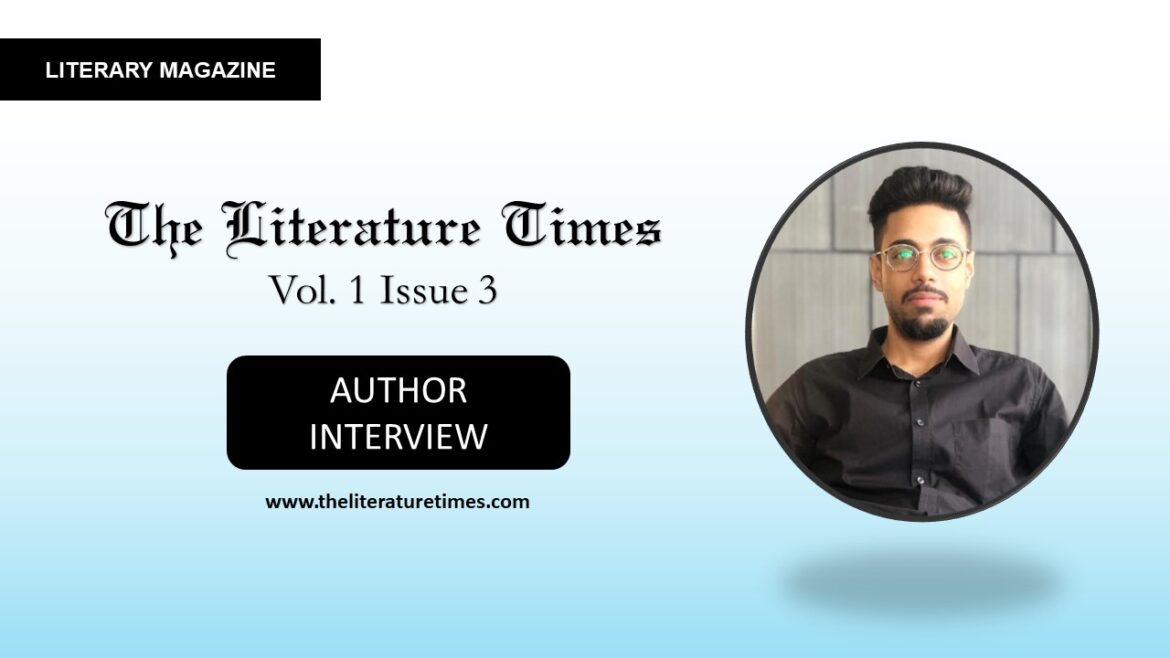Author’s Background: Richik Banerjee teaches in the Department of English at St. Paul’s Cathedral Mission College, University of Calcutta. He is pursuing Ph.D. in the field of subaltern studies from Amity University Kolkata. His research articles on sahitya have been published both nationally and internationally. His debut poetry book, ‘Two Commas And That Voice’ was published in 2021 by Authorspress, New Delhi. His second book titled ‘…URINE, YOGHURT, PSYCHOTOMY’ was published in 2022 by the same publisher. He is a member of the Intercultural Poetry and Performance Library (IPPL), a non-profit organization that aims to generate academic interest towards poetry, nurture creativity and reading habits. He is one of the editors at Virasat Art Publication, Kolkata. He is one of the members of Haoajan Publishers, Kolkata. He is one of the members of the Indian Network for Memory Studies (INMS), which is the first national network for scholars in Memory Studies in Asia under the aegis of the Memory Studies Association.
Questionnaires:
Neel Preet: Firstly, Congratulations on your book, “…Urine, Yoghurt, Psychotomy!” What kind of responses are you getting from this book of yours? Please share your experience about this book.
Richik Banerjee: Thank you so much for your kind wishes. The book is fetching good responses from the academic forum. I must say that this project of intermingling poetry with literary theory (concealed) so as to obtain an anti-poetic stance is extremely tough at the very outset. But, for my project I have received tremendous support from all corners of sahitya-driven people.
Neel Preet: Your book is a wonderful collection of “Emotional Poems” so what inspired you to write these poems?
Richik Banerjee: Any creative process runs on a very basic engine: emotion. But the problem arises when we try and crystallize our emotions into rational speech-acts. For me, emotion has always been the driving force in any creative output. I try and de-langualize my emotion as much as I can as I feel that the trap lies when writers force upon themselves a kind of sensed emotion (in the form of ‘correct’ bhasha) as a kind of necessary academic compulsion. In my book, in my own way, I have raised this issue in my own terms. Sahitya is outside of any ‘correct’ language.
Neel Preet: You’ve given a very interesting & unique title to your book, which is very catchy too so, what made you go for this title for your book?
Richik Banerjee: This book is a part of the ‘hyper-excretional realism’ project where sahitya meets waste to inform a socio-cultural collective. The title falls under a part of my project-idea which, in all likelihood, shall hope to bring out the creative tension between sahitya and production (and de-production).
Neel Preet:What was your mind-set, while working on this book? What was the impetus behind this work of yours?
Richik Banerjee: My main focus was to demystify the bhasha of poetry and expose the rampant hypocrisy of the literary setup. My attempt was to start off an anti-ethical movement where sahitya is not informed by any sensed grammar of life.
Neel Preet: Very few Authors are coming out with ‘Poetry Collections’ these days however you did so, which I believe is a bold step. So, why did you choose Poetry and not something else?
Richik Banerjee: I don’t write for the market. I don’t write about the market. I live to write. Poetry does not sell much. A novel does.
I choose poetry as a tool to connect with my readers as it has the ability to travel fast. Also, poetry does not bear any right to have any kind of literary formalization which I feel is a unique feature.
Neel Preet: While reading your book, I found that your poems had some really strong emotions and stories inside them, which had greatly impressed me and thus I would like you to explainthe overall theme of your book!
Richik Banerjee: I do not want my creative tension to be langualized in any formal form. I leave all forms of explanations to my readers. As I have mentioned in the book that the author has been dead long time back.
Neel Preet: Your writing seemed to be impeccable and you were bold with your poems in your book, which I really appreciate. Therefore, I want you to tell us about some of those writers, who had inspired you and whom you follow!
Richik Banerjee: I am inspired by all sorts of anti-establishment writers and their artistic compositions. There is no favourite of mine. I love experimental writers, underground writers but writers who can also mobilize their readers with their energies. For me, a writer should be able to expose the system and then connect with the victims of the system. I am a communist. So, I have enjoyed leftist writers all around. Currently, I am a fan of Subimal Mishra.
Neel Preet: Is there any message which you would like to convey to your readers? Or any piece of advice, which you would like to give to the readers out there!
Richik Banerjee: Read something, forget what you have read and practice what you have forgotten. Education does not matter much. Learning does. So learn better. Fail better.
Neel Preet: Are there any other books being worked by you? Please let us know about your future projects.
Richik Banerjee: Yes. I am writing something in Bangla. There is a project in mind which I hope to deliver in my mother tongue. Also, the second part of the ‘hyper-excretional realism’ project is cooking up which I plan to start next year.
Neel Preet: Thank you so much for answering all my questions. All the very best to you for future and your book too!
Richik Banerjee: Thank you so very much. It was lovely chit-chatting about my project ideas and poetry. Fare well and best wishes to you too.



